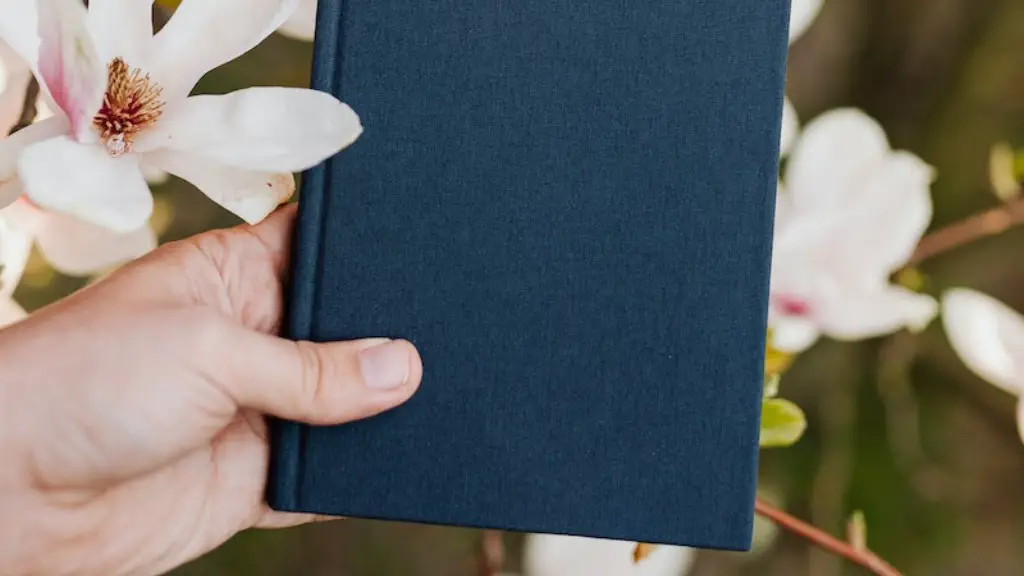Poetry has been around for centuries, providing an emotional, powerful and enjoyable form of literature. It is an art form that is both expressive and unique. The use of words, meter, stanzas and rhythm in poetry allow writers to create a piece of writing that has the power to convey a message or story to readers in a poetic way. Many people have been captivated by the beauty of poetry, and its advantages are numerous.
Firstly, poems can be used to express emotions. This can be done through the use of imagery, metaphor and simile in order to create a vivid picture for readers. For example, the poem ‘Daffodils’ by William Wordsworth is a great example of how poetry can be used to express powerful emotions of joy and beauty. Through the use of language and imagery, readers can visualise and relate to the emotions being portrayed. Similarly, poetry can also be used to express feelings and thoughts that are difficult to articulate – it has the power to transform difficult emotions into beautiful works of art.
Secondly, poetry is an excellent form of creative expression. It provides an outlet for writers to express their feelings, thoughts and ideas. Through the use of poetic techniques such as rhyme, line breaks and alliteration, writers can create a piece of art that truly reflects their personality. Writers also have the opportunity to use different forms of poetry such as sonnets, free verse, haikus and ballads to add greater depth and complexity to their work. This allows writers to explore their creativity and produce stunning art.
Thirdly, poems can act as a form of therapy. Writing poetry can be a therapeutic activity that is beneficial for mental health. By pouring out one’s emotions through words, it can help one to process and understand how one feels. It can also provide an outlet for relief from trauma or distress. Additionally, it can provide comfort and calmness, by creating a sense of companionship for the writer. Therefore, poets can use poetry as a way to process feelings, emotions and experiences.
Fourthly, poetry can be used as a tool for education. As a form of literature, poems can be used to educate people. Teachings can be hidden within poems, as stories and morals are often contained in the lines. Poetry can be used to communicate a message, highlighting certain topics and provoking thought processes. Therefore, poems can be used as a teaching tool, in the same way as prose or stories.
Finally, poetry can be used to entertain readers. Poems often contain captivating stories, humorous rhymes and witty puns which make them enjoyable to read. They can also be used to celebrate special occasions, such as birthdays or anniversaries, by expressing love and gratitude. Consequently, poems are a great way to entertain readers and bring the joy of literature to their lives.
Poems as a Source of Inspiration
The beauty of poetry lies in its ability to inspire – as poets seek to explore their own thoughts, emotions and experiences through words, they are often inspired to create something new. Poems can be used as a source of inspiration to authors, as its complexity and beauty can stimulate ideas and open new doors that weren’t previously visible. For example, the poem ‘A Dream Within a Dream’ by Edgar Allan Poe, is a great source of inspiration for writers and poets, as it is highly contemplative with an air of mystery and fascination. As such, it can be used to spark the imagination and encourage creativity.
Poetry as a Reflection Of Society
In addition, poetry can also be used as a reflection of society. Through its lyrics and verses, poets can explore current issues in the world and reflect on the feelings, emotions and thoughts of others. Poems can be used as a form of protest, as a way to raise awareness and speak out about certain issues. For example, the poem ‘Still I Rise’ by Maya Angelou, is a powerful poem about overcoming the challenges of racism and oppression. This poem is an inspiring message to readers, highlighting the strength and determination needed to overcome adversity.
The Impact of Poetry
Overall, the advantages of poetry are plentiful. By exploring its intricate structure, art and expression, poets can create beautiful works of art that have the potential to inspire, educate and entertain. Furthermore, it provides a unique way to explore society, allowing poets to reflect on current issues and raise awareness with their words. Consequently, poetry can have a positive impact on those who read it and can be appreciated by all.
The Power of Poetry
The power of poetry lies in its ability to evoke emotion through words. Poets are able to express powerful feelings and thoughts through their writing and create an emotional connection to their readers. This can be done by using vivid imagery, metaphor and simile. For example, a poet may describe the ‘tears of joy’ that are elicited from the experience. Similarly, a poet may use metaphors to describe the beauty of some of life’s moments, such as ‘the sun setting like a diamond in the sky’. This type of imagery has the power to make readers feel something, and enables poetry to have a real, emotive impact.
The Uniqueness of Poetry
Another advantage of poetry is its uniqueness. Unlike prose, poetry has no limits; it can be written in any form, with any combination of words and styles. This allows writers to express themselves in a completely unique way. Poetry can be used to tell stories, to explore complex emotions or to protest against certain issues. It can be used to express so many different topics, and this variety is truly unique to poetry.
The Benefits of Reading Poetry
Of course, reading poetry can also be beneficial. Poems can transport readers to another world, providing a form of escapism. Reading poetry can also improve language skills and enhance knowledge of literature, as poets often use complex words and poetic techniques such as rhyme and metre. Consequently, reading poetry has many benefits, and can be a great way to improve one’s vocabulary and understanding of language.
The Ease and Flexibility of Writing Poetry
The final advantage of poetry is its ease and flexibility. Writing poetry requires no specific rules or structures, allowing writers to express themselves freely. Poets are also able to explore complex topics and emotions through the use of language and imagery, meaning they can explore their own thoughts and ideas in a unique way. By creating a piece of art that is both meaningful and beautiful, poets can unlock their creativity and channel their ideas into a poetic form.



